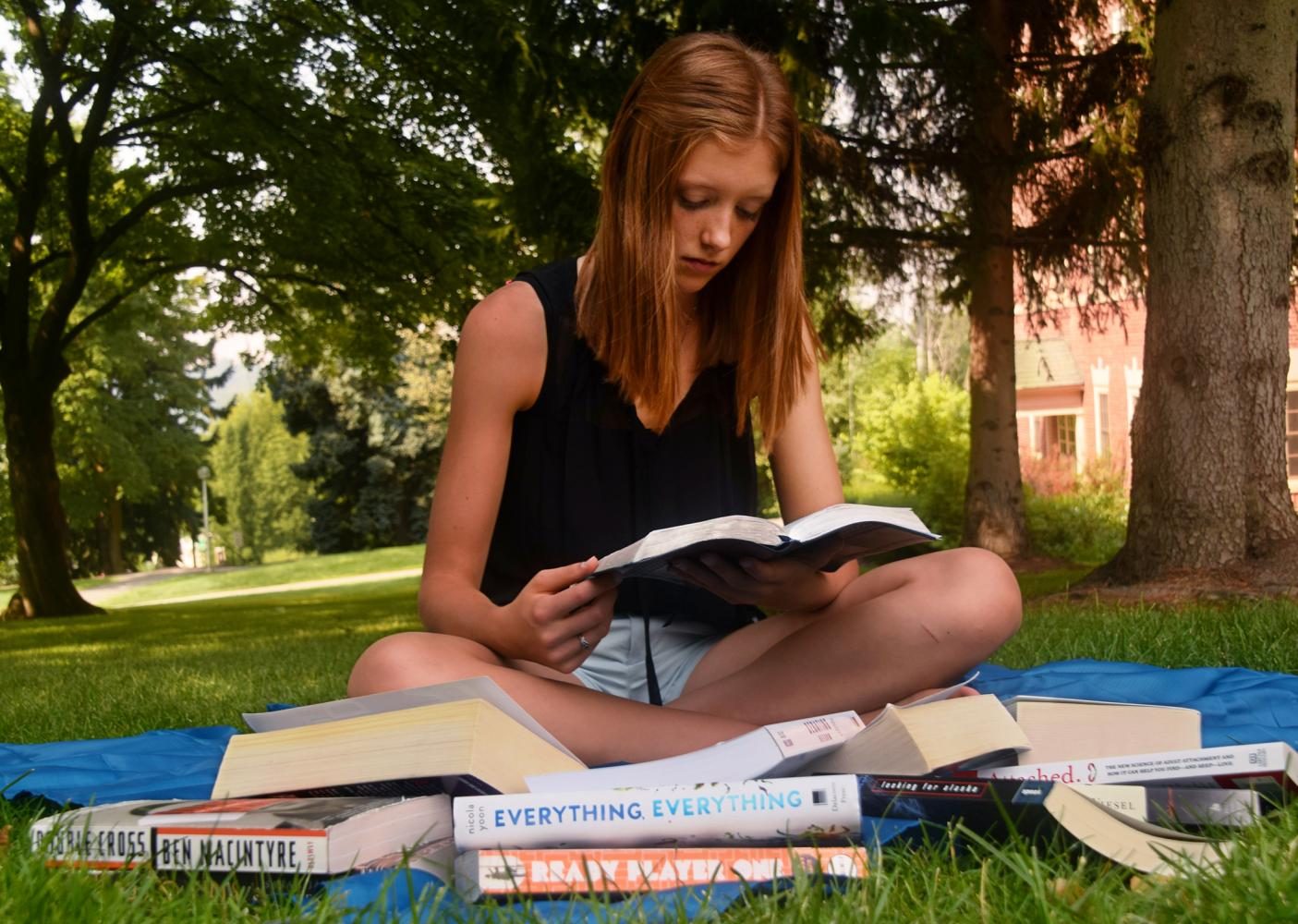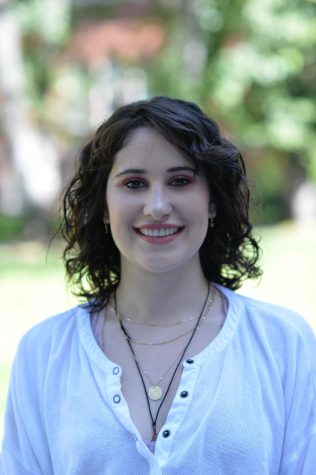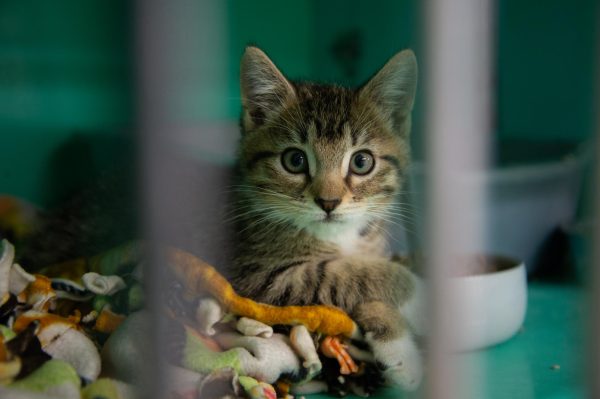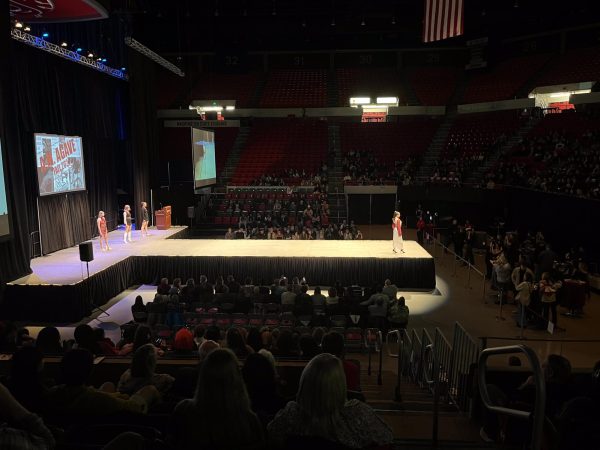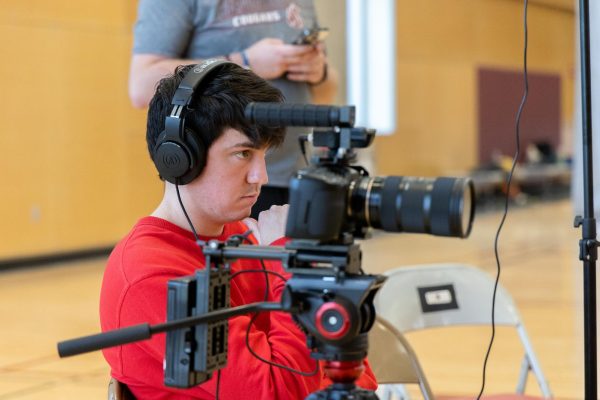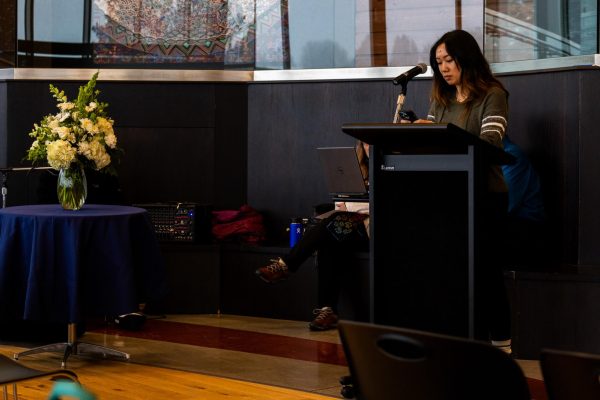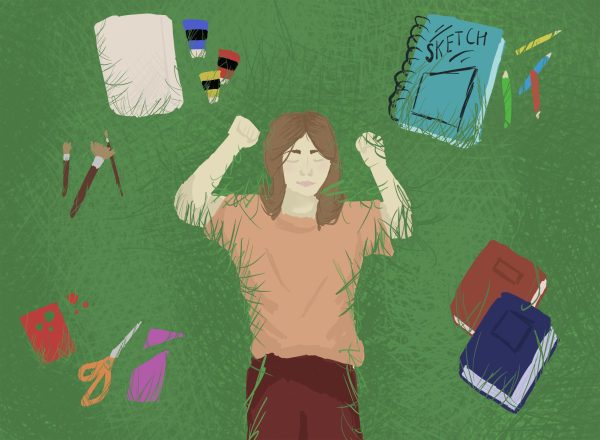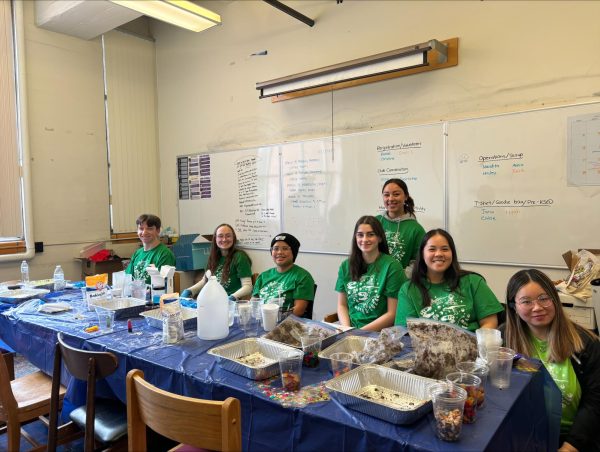Reading acts as a form of therapy
Bibliotherapy is a natural way to reduce stress and mental ailments in today’s technology-driven world.
JORDAN MAXWELL | The Daily Evergreen
Reading is a way to escape reality and take your mind off stressors. It can be beneficial in curing a mental illness, like depression.
August 30, 2017
The newest frontier of therapy for mental illness comes in the form of reading books.
For bibliophiles like Julie Kmec, professor of sociology, this seems like a no-brainer.
“Students are stressed out because there are so many demands on them,” she said. “Demands of their time, demands of their attention. It’s almost as if people have no down time.”
With the birth and rapid expansion of social media, the need to be “on” all the time continues to evolve. College students feel the need to be seen in a multifaceted technological universe, Kmec said, and many would give anything to relieve some of the stress they are subjected to.
This is where a book — a physical, black and white book — comes into the picture. Time spent with the book is different than time spent tweeting, checking email and surfing the web, Kmec said.
“There are books in which the characters deal with certain problems,” Kmec said, “Bibliotherapy is using the experiences of the people in the books to help you figure out your own experiences.”
Todd Butler, associate professor and chair of the English department, emphasized the importance of empathy in reading a book and how perspective is key to this therapy.
People become so wrapped up in their own lives that sometimes they just need to read to gain perspective and realize that the world is full of diverse circumstances, Butler said.
“[Bibliotherapy] can allow yourself to feel less isolated, feel sympathy and connection to someone else going through something,” he said. “In watching that happen, you can process through things that are happening to yourself.”
Moving out of isolation and into a new world, fictional though that world may be, is a key component of research on bibliotherapy, he said.
More outlets are beginning to understand the importance of the written word.
Kmec cited the article “Bibliotherapy: Reading Your Way to Mental Health,” published last year in the Wall Street Journal’s health journal. The article outlines some of the studies conducted over the past few years.
One of these, from the Journal of Applied Social Psychology’s “The greatest magic of ‘Harry Potter:’ Reducing prejudice,” found that children who grew up reading the “Harry Potter” book series tend to be more tolerant of others, including minority groups.
Bibliotherapy is a growing medium, which now includes “prescriptive bibliotherapy”, defined by self-help books. The journal mentions “Books on Prescription,” an organization centered on using books to target specific, short-term troubles people are going through. Books on grief, adoption and divorce are common.
Creative bibliotherapy is where Kmec and Butler find their statements resonating. These are the novels, short stories, poems and plays that can improve mental health.
Kmec mentioned a program called “The Novel Cure,” on which a person can look up any sort of mental ailment and receive a list of books to read.
As college students, making time to read is not an easy feat. With multiple assigned readings, seeking out a novel on top of it can seem redundant.
However, several studies have shown students who engage in outside reading are more likely to manage both their time and their stress in healthier, more fulfilling ways, Kmec said.
Butler said books are a form of technology, adding that we are lucky to live in a time that has laid so many resources at our feet. People need only make time to sort through those resources.
“[Bibliotherapy] can enable you to find things that are totally foreign and unfamiliar to you,” Butler said, “in ways that are just as powerful in terms of helping you think through the world around you and move out of a really, necessarily isolated world.”


